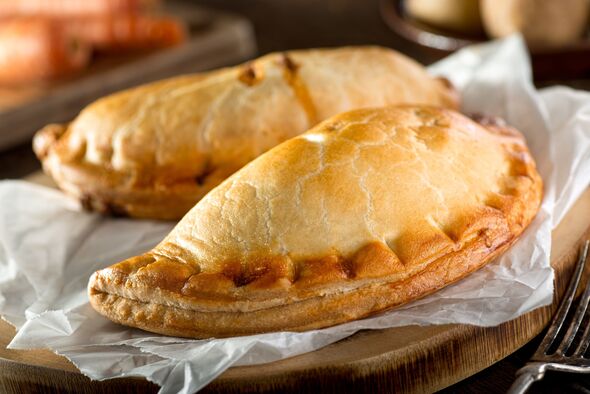Lifestyle
Authentic Cornish Pasties: The Only Recipe You Need

The Cornish Pasty Association has clarified the strict criteria for creating an authentic Cornish pasty, emphasizing specific ingredients and preparation methods. According to the association, the pasty must contain “no meat other than beef” and must include a defined selection of vegetables. This includes onions, yellow-fleshed swede, and potatoes, with particular emphasis on using the correct type of swede, often confused with other varieties.
The association states, “The vegetable to use is the yellow-fleshed swede, not a white turnip. This is commonly known in Cornwall as the turnip.” They further elaborate that this vegetable is also referred to as the yellow turnip or Swedish turnip in various regions, while in North America, it is known as rutabaga. The recommended potato for use in the pasty is the Maris Peer variety, along with beef skirt, a specific cut of meat.
Ingredients and Preparation
To craft these traditional pasties, one requires the following ingredients for the shortcrust pastry:
– 500g strong bread flour
– 120g lard or white shortening
– 125g butter
– One teaspoon salt
– 175ml cold water
For the filling, gather:
– 400g beef skirt, cut into cubes
– 300g potato, peeled and diced
– 150g yellow-fleshed swede, peeled and diced
– 150g onion, peeled and sliced
– Salt and pepper to taste (recommended ratio of 2:1)
– Beaten egg or milk for glazing
To begin, add salt to the flour in a large bowl, then rub in the butter and lard. Gradually add cold water and knead the mixture until it becomes elastic. Cover the dough with plastic wrap and refrigerate it for three hours. After chilling, roll the dough out and cut it into circles measuring approximately 20cm in diameter.
Next, layer the beef and vegetables onto one half of each dough circle, seasoning generously. Fold the dough over and crimp the edges to seal the pasty securely. Glaze the top with beaten egg or milk, and bake in a preheated oven at 165°C (fan) for about 55 minutes.
Defining Authenticity in Cornish Pasties
It is crucial to note that only those pasties produced west of the Tamar River in Cornwall can be classified as authentic Cornish pasties. This geographical distinction is vital for maintaining the cultural heritage and culinary integrity associated with this traditional dish.
As the popularity of Cornish pasties continues to grow, the emphasis on using the correct ingredients and methods remains essential for both culinary enthusiasts and professionals alike.
-

 Entertainment2 months ago
Entertainment2 months agoIconic 90s TV Show House Hits Market for £1.1 Million
-

 Lifestyle4 months ago
Lifestyle4 months agoMilk Bank Urges Mothers to Donate for Premature Babies’ Health
-

 Sports3 months ago
Sports3 months agoAlessia Russo Signs Long-Term Deal with Arsenal Ahead of WSL Season
-

 Lifestyle4 months ago
Lifestyle4 months agoShoppers Flock to Discounted Neck Pillow on Amazon for Travel Comfort
-

 Politics4 months ago
Politics4 months agoMuseums Body Critiques EHRC Proposals on Gender Facilities
-

 Business4 months ago
Business4 months agoTrump Visits Europe: Business, Politics, or Leisure?
-

 Lifestyle4 months ago
Lifestyle4 months agoJapanese Teen Sorato Shimizu Breaks U18 100m Record in 10 Seconds
-

 Politics4 months ago
Politics4 months agoCouple Shares Inspiring Love Story Defying Height Stereotypes
-

 World4 months ago
World4 months agoAnglian Water Raises Concerns Over Proposed AI Data Centre
-

 Sports4 months ago
Sports4 months agoBournemouth Dominates Everton with 3-0 Victory in Premier League Summer Series
-

 World4 months ago
World4 months agoWreckage of Missing Russian Passenger Plane Discovered in Flames
-

 Lifestyle4 months ago
Lifestyle4 months agoShoppers Rave About Roman’s £42 Midi Dress, Calling It ‘Elegant’









